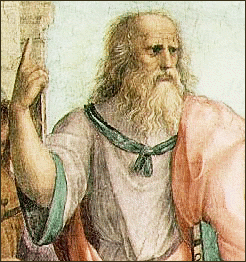Brazil’s Interesting Experiment: Studying Philosophy important for “Exercise of Citizenship”
Brazil has a strange law, where the Brazilian teenagers have to study philosophy because it is necessary for the exercise of citizenship. It is by far one of the most important experiment in preparing an entire society for deliberate and intelligent democratic engagement.
Generally countries these day and populations don’t like the Government mandated curriculum impacts. But sometimes, certain things can help. Philosophy is intangible and something that doesn’t give “monetary value” to a student in his/her career and life. Then, how is the study of Philosophy going to help in the exercise of one’s “citizenship”?
Unfortunately in today’s world, where our attention and our “scholarship” is directly dictated by the continuous stream of fast disappearing (into archives) updates – news and personal – it is important for any society to have people who can deliberate and investigate the foundational concepts of fairness, justice and democracy.
If any society has to safeguard the principles, then its citizens need to understand them.
Interestingly, the dictatorship which ruled Brazil from 1964 to 1985 eliminated philosophy from the curriculum and replaced it with Moral and Civic Education. That is enough to know the significance and the utility of “Morals”.
Between the ideologies of the Dictators, the Theology of the religious and the Reason of the Philosophers – there is always a battle. Two ideologies – of the Dictator/Ideologue and the Religious, have a battle. Both of these independently have a battle with the Philosophers – who would like to announce their independence from both.
How does one make sense? Here is an interesting discussion on one instance of this dichotomy.
I assured the students that until the nineteenth century hardly any philosopher was an atheist. Plato’s Euthyphro—with its argument about the relationship between ethics and the will of the gods—gets us into a lively discussion.
I asked them, “Do moral norms depend on God’s will? Would it be fine to murder an innocent child if God says so?” The students found the idea outrageous.
“But doesn’t God order Abraham to sacrifice Isaac?” I asked. There was a moment of confusion.
“But Abraham also holds God responsible when he wants to destroy Sodom and Gomorra,” one student replied. That can be interpreted as an independent norm of justice, I admitted.
I pressed on. “But if God must submit to objective moral norms, do we still need the Bible for moral guidance?”
Another student doubted that reason can replace the Bible: “Reason even justifies killing an innocent child if that’s the only way to save a thousand lives.”
We assumed for the moment that reason is indeed unable to ground absolute moral norms. “But how can we act on the authority of the Bible if there are so many different interpretations of it?” I asked. A third student intervened: “Can’t each interpretation be right in its own time and place?” I reminded them of Salvador’s Museum of Modern Art, which they visited on a class excursion. It is located in a beautifully restored casa grande—a colonial plantation owner’s mansion—with adjacent slave dormitories—senzala. “You remember the private chapel? Going to mass and having slaves obviously wasn’t a contradiction back then.” Most students have slaves among their ancestors. So they were reluctant to concede that an interpretation of the Bible allowing slavery is valid. “Is, then, reason the arbiter between competing interpretations?” I asked.




